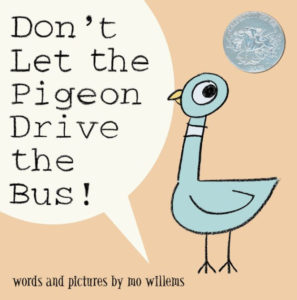Ephesians 6:12
“For our struggle is not against flesh and blood, but against the rulers, against the authorities, against the powers of this dark world and against the spiritual forces of evil in the heavenly realms.”
Sometimes it seems as though lockdown was when we were all sent to our corners, and now it’s time to come out swinging. We’re all revved up and bouncing on our toes and ready to let loose on any opponent that comes our way. Float like a butterfly, sting like a bee. Watch out world, here we come.
I wish that the lockdown had worked more like a time-out, where we all took some much-needed time to calm down and think about what we’ve done. As individuals, I’m sure there were many who did just that. But collectively, it seems like orders to stay at home worked more like a boxing ring corner than a time-out corner.
I think social distancing has played a big role in this. When we aren’t spending time together in person, it’s so easy to reduce people to words on a screen. I confess that I am guilty of this lately. Friends of mine post things on Facebook that I disagree with, sometimes very strongly, and I reduce them to that opinion. Suddenly those people are the other side of an “us vs. them” divide in my head. When we are together in person, they are human beings who I care about, with fears and hopes and ups and downs, every bit as fragile and fallible and beautifully created in the image of God as I am. We can laugh and cry and pray together despite coming to different conclusions on some issues.Through the screen, I can be lured into forgetting their humanity and viewing them as caricatures.
I am guilty – and I suspect that I am not alone.
Wired for Story
The world runs on stories, and this is by design. The Gospel is, after all, the greatest story ever told. Our hearts were meant to respond to stories so that we can enter into each other’s stories and ultimately into God’s redemptive story. It is why we love novels and movies. It is why children play imagination games. We are hard-wired for it. This is both a gift and a liability.
Tremendous power and influence are at stake, depending on which stories we believe. So everyone from politicians and lobbyists to media outlets, from your pastor to your crazy uncle on Facebook – everyone has a story to tell and something to gain from you believing it. And every good story needs a villain.
Have you ever read the children’s book The True Story of the 3 Little Pigs by A. Wolf? This clever picture book is the story of the Three Little Pigs from the perspective of the wolf, who is neither big nor bad according to his version of events. My daughter just read another story in which Little Red Riding Hood was actually on a mission to betray Snow White, and the grandmother she’s visiting is the evil queen. In this version, the wolf is the hero who has been sent to defeat their plot. It’s popular lately to re-imagine fairy tales, which typically have very black and white heroes and villains, in order to see both sides of the story. Perhaps the same technique could be applied to our real-life stories that involve nuanced human beings.
Who is the Villain?
This verse from Ephesians has been familiar to me since childhood, when I went to Vacation Bible School with a knights and castles theme and learned about the armor of God. We learned each piece of the armor and spent craft time making a full suit out of cardboard and aluminum foil. I knew the verse so well that I missed the point entirely – until a few years ago when a wise pastor pointed it out in a sermon.
It’s so simple, yet life-changingly profound – and it was right there at the beginning the whole time:
“Our struggle is not against flesh and blood…” – so if it has flesh and blood it is NOT my enemy.
That politician you can’t stand? Not your enemy.
The police officer who killed George Floyd? Not your enemy.
The protest group occupying Capitol Hill in Seattle? Not your enemy.
The researchers developing vaccines for covid-19? The people helping to fund that work? The people at the grocery store who refuse to wear masks? Immigrants and refugees? Active members of the KKK?
NOT. YOUR. ENEMY.
This also means that this armor of God that is described in Ephesians 6:14-18 is not intended for use against other human beings. Most of it is for defense anyway. But the word of God, which is described as the sword of the Spirit (v. 17), was never meant for us to use to attack people. If it has flesh and blood, it is not my enemy.
There is a real enemy operating on a whole other plane, and his purposes are well-served if he can get us distracted from the true struggle by leading us to believe a story in which other people – especially other Christians – are our enemies. If he can get us fighting each other about temporary things, he can carry on with his true purposes to steal, kill, and destroy (John 10:10) without much resistance. Jesus was clear on this:
Do not be afraid of those who kill the body but cannot kill the soul. Rather, be afraid of the One who can destroy both soul and body in hell. (Matthew 10:28; see also Luke 12:4)
The next time you feel yourself being drawn into a battle, pause and consider the enemy. Does it have flesh and blood? If it does, then this is the wrong enemy and the wrong battle. This is the diversion. Ready your armor and be prepared to engage the true enemy.








